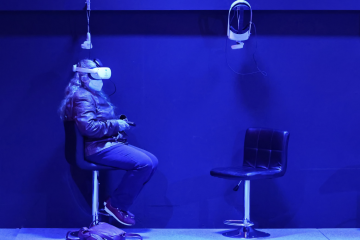John Anaya, special rapporteur on the rights of indigenous peoples, visited Canada for nine days in October 2013 to interview First Nations communities and government officials, after the United Nations (UN) criticized the country for its treatment of aboriginal citizens.
In September, Canada had its third Universal Periodic Review by the Human Rights Council (HRC), the largest human rights enforcing body under the UN. Canada has currently rejected 40 out of 162 HRC recommendations, including a national inquiry on violence against aboriginal women, among other indigenous issues. This is not the first time Canada has ignored HRC rulings, nor the first time Canada has been reprimanded for failing to address such concerns.
In 2004, a UN special rapporteur gave Canada a tough report on its treatment towards Canada’s indigenous population. Anaya expressed his intent to travel there in February 2012, but his request was not accepted by the government until now. While Anaya notes that improvements have been made, many problems remain, such as Canada’s inability to narrow the “well-being gap” between aboriginals and non-aboriginals.
CBC News reports that at a news conference in Ottawa following the completion of his investigation, Anaya said, “From all I have learned, I can only conclude that Canada faces a crisis when it comes to the situation of indigenous peoples of the country.”
During his trip, Anaya observed deep mistrust between the indigenous community and the government. This stemmed from an unresolved colonial legacy and insufficient government action, which has left indigenous peoples at a disadvantage. Anaya’s preliminary criticisms include unnecessarily poor living conditions on reservations, the phenomenon of missing aboriginal women, and levels of inequality within the education system.
In visiting reserves all over the country, Anaya saw cases of extreme poverty, including overcrowded homes, homes in need of serious repair and some without running water. He partially attributed this to inadequate funding, and expressed concern that such unsanitary conditions lead to health problems, negatively affect familial relations and create a difficult environment for children to focus on their studies. In his preliminary report to the UN, Anaya wrote that the suicide rate among indigenous youth living on reserves is five times greater than non-aboriginals. One community he visited, for example, had experienced a suicide every six weeks since the beginning of this year.
“I urge the government to treat the housing situation on First Nations reserves and Inuit communities with the urgency it deserves…It simply cannot be acceptable that these conditions persist in the midst of a country with such great wealth.” Anaya said in his conference in Ottawa, according to Maclean’s Magazine.

Upon his visit, Anaya also urged a nationwide investigation into the “disturbing” phenomenon of missing or murdered aboriginal women. This had been requested by the Native Women’s Association of Canada in 2012, who alleged that about 600 cases occurred in the twenty years leading up to 2010, although police claim to have data for just a little over 100 cases. No public inquiry was ever made, despite support from premiers in most provinces. Anaya hopes the government will respond, to provide relief to the victims’ loved ones and to initiate preventative action in a country where aboriginal women are eight times more likely to be murdered than other Canadian women.
Another main concern the rapporteur highlighted was the under-funded education system of on-reserve schools in comparison to those in the provincial system. The Canadian government intends to address the proposed First Nations Education Act this fall, which aims to reform aboriginal education, but the bill has been met with much opposition from indigenous leaders. Anaya alerted the government to revisit the bill and proceed with caution.
“…I urge the government not to rush forward with this legislation but to reinitiate discussions with aboriginal leaders to develop a process and ultimately a bill that addresses aboriginal concerns and incorporates aboriginal view points,” he said.
Anaya also noted that repercussions of the infamous residential schools remain. He recommended the government extend its mandate of the Truth and Reconciliation Commission, which is expected to expire next summer, in order to allow the completion of its investigation.
Anaya’s official report will not be submitted to the UN until September 2014. Thus, it is difficult to determine whether this move by the HRC will prove effective in ameliorating human rights abuses in Canada, though First Nations peoples are optimistic.
“It is our hope that the special rapporteur’s report will help compel action. First Nations are willing and ready for the hard work,” Shawn Atleo, national chief for the Assembly of First Nations, said in a written statement to CBC News.
However, Anaya expressed concern that, “Unless legislative and other government actions that directly affect indigenous peoples’ rights and interests are made with their meaningful participation, those actions will lack legitimacy and are likely to be ineffective.”




